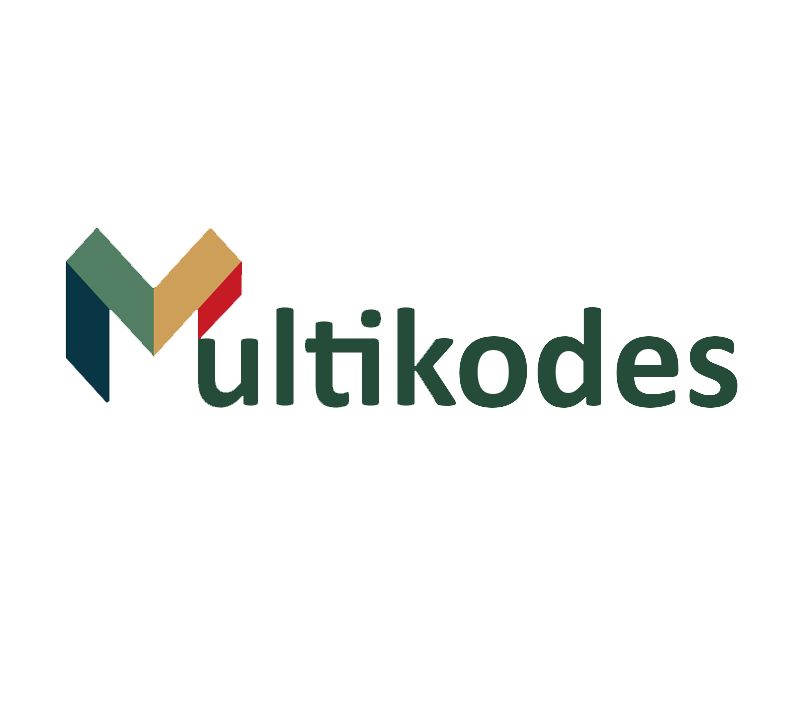Content
Unsolicited e-mails do not create an attorney-client relationship and confidential or secret information included in such e-mails cannot be protected from disclosure. Orrick does not have a duty or a legal obligation to keep confidential any information that you provide to us. Also, please note that our attorneys do not seek to practice law in any jurisdiction in which they are not properly authorized to do so.
This approach enforces how to effectively make financial transactions outside traditional banking. Fintech empowers approximately 2 billion people across the world with no bank accounts. It provides them easily accessible options to make them more financially viable without the help of traditional banks. Data security is another issue regulators are concerned about because of the threat of hacking as well as the need to protect sensitive consumer and corporate financial data. Leading global fintech companies are proactively turning to cloud technology to meet increasingly stringent compliance regulations.
Online Transactions
To be sure, many fintech stocks have been hit hard in the recent stock market downturn. Growth stocks in general have taken the worst of the decline, and most fintechs fit into this category. Founded in 1993 by brothers Tom and David Gardner, The Motley Fool helps millions of people attain financial freedom through our website, podcasts, books, newspaper column, radio show, and premium investing services. With the prevalent hacking of sensitive personal fintech industry overview data, people wonder if cryptocurrency is subject to the same risk. One might think because of the decentralized nature of cryptocurrency there’s a greater risk for hackers to manipulate the system, however, that’s not the case. One of the biggest challenges banks face to implementing new technology is figuring out how to move away from their old legacy systems that have been in place for decades, on which their entire operations rely on.

In the future the range of FinTech services is predicted to transform the market even more with AI and machine learning and will make FinTech products an integral part of our digitalized life. The nascent financial technology industry in London has seen rapid growth over the last few years, according to the office of the Mayor of London. Forty percent of the City of London’s workforce is employed in financial and technology services. As of April 2019, about 76,500 people form the UK-wide FinTech workforce, and this number is projected to rise to 105,500 by 2030. Of the current fintech workforce in the UK, 42% of workers are from overseas.
Risk Factor Summation Method
By removing the expensive bank fees, payment gateways have given consumers considerable benefits and savings. Many use it to do various financial transactions in ways that are far more convenient than before. This is the place to connect with those in the local FinTech scene and an interest in financial services, technology,… Fintech also lead to a disruption of the insurance industry including everything from online policy handling, data protection and providing tailored insurances.

By making financial systems easier to use and more readily available, businesses and consumers will also improve their respective affairs. Aside from these advantages, fintechs are also upgrading the security aspects of online payment gateways. For instance, fintechs are developing blockchain-based systems to make electronic money transfers more secure and cost-effective, compared to banks. For the past few years, PwC has posted a report called the “Global Fintech Report”. The 2019 report covers many topics of the financial technology sector, describing the landscape of the “Fintech” industry, and some of the emerging technologies in the sector.
The Risk Of A Fintech Bubble
As with more traditional portfolio management companies like Fidelity and Vanguard, robo-advisors also encourage users to auto-fund their accounts on a regular basis. As such, password changes or re-authentication may be needed from time to time, as per the rules of the app. These two aren’t necessarily sworn enemies—in fact, banks have been using some form of financial technology for decades. However, when it comes to banking services, it’s important to note some important differences. The author discusses 14 main areas of FinTech, the world’s FinTech hubs, and FinTech firms that have made it past a $1 billion valuation.
In time, fintech can be expected to enter other areas of finance, such as asset management. In the European Union, fintech companies must adhere to data protection laws, such as GDPR. Companies need to proactively protect users and companies data or face fines of 20 million euros, or in the case of an undertaking, up to 4% of their total global turnover. Klarna is a fintech company that provides payment services for e-commerce, or, broadly, any activity comprising a digital transaction.
- When selling globally, sellers have to deal with the overhead of international money transfers and currency exchange.
- It can also apply to the development and trading of cryptocurrencies (e.g., Bitcoin, Dogecoin, Ether).
- Headquartered in Menlo Park, CA, Robinhood creates cash management apps for cryptocurrencies, stocks, options, and EFTs.
- The online financial sector is also an increasing target of distributed denial of service extortion attacks.
- Over 200 billion mobile apps downloads happen each year, most of them for Android followed by iOS.
This framework provides a great deal of value, but it can also increase the risk of cyberattacks and security breaches. Therefore, aspiring fintech professionals can benefit from a working knowledge of cybersecurity; studying how it is used to protect https://globalcloudteam.com/ fintech companies from hackers and other cyber threats. Of course, these portfolios need to be funded with money from a traditional bank account, so onboarding requires authentication and proof of ownership of those connected bank accounts.
Fintech And New Technologies
Motions such as how hard the user strikes the keys, the angle their finger swipes the touchscreen, or a particular typing rhythm all create a user identity. Using machine learning algorithms, behavioral biometrics builds a unique picture of an individual user. The end results is better fraud identification, particularly for mobile payment authentication. For some, it’s hard to believe that fintech could possibly live up to its hype. But with a growing interest in AI and tailored financial products, not to mention the ever-growing demand for instant-gratification, the future of fintech is bright. Payment solutions such as PayPal, Stripe and Venmo are perhaps the most notable examples of fintech, as they’ve made their way into our collective zeitgeist.
This is mainly because traditional banks had been operating in ways that marginalize many impoverished people. Fintech uses technological tools to help consumers and companies to more efficiently manage their financial transactions. Initially confined to only desktops and laptops, fintech services are now increasingly done using smartphones.
Although banking has a complex framework inhibiting the rebuild of organizational procedures, the incorporation of APIs enables easier integration of third-party, fintech software solutions and features into bank platforms. Can APIs and SaaS adoptions be enough to streamline their processes and meet fintech firms? Digital banking is a major step up from traditional banking, but there is still a long way to go.
It also supervises all bank holding companies and all fintech transactions in the U.S. Due to diverse fintech offerings and the discrepant industries using fintech products, it is challenging to create a single and comprehensive strategy to these legal issues. Governments mostly use existing laws, which typically caused these conflicts. Coinbase manages the world’s largest cryptocurrency exchange, used by more than 25 million users from 32 countries.
Advancements towards the decentralization of access, more accurate analytics, big data, increased information, and mobile banking will be key. With the ongoing antagonistic regulatory regime, fintech is taking a more proactive approach to achieve better, trouble-free diffusion. There’s now the so-called regulatory technology that functions to help IT-based industries like fintech to better comply with regulations. Most of these laws, however, are already outdated, while some are totally inapplicable to fintech.

According to Statista the mobile payment market might exceed $1 trillion in 2019. Established bank products find themselves increasingly displaced and for both businesses and customers banking has largely become more convenient, efficient and easy of access. In contrast to traditional banks, FinTech startups operate flexible and fast when it comes to implement new services based on changing demands. Banking fintechs, for example, may generate revenue from fees, loan interest, and selling financial products. Investment apps may charge brokerage fees, utilize payment for order flow , or collect a percentage of assets under management . Payments apps may earn interest on cash amounts and charge for features like earlier withdrawals or credit card use.
Understanding The Components Of Fintech Valuation
Contributions from FinTech innovators discuss banking, insurance and investment management applications and legal and human resource implications of FinTech in the future. Individual consumers are perhaps the largest fintech adopters with online banking, crowdfunding and investing more accessible than ever. For many, fintech has woven its way into daily routine due to the direct and customer-oriented nature of financial technology. Unlike the traditional financial services business valuation methods described earlier, Fintech, like most startups, has specific approaches that are used for appraising investments. Modern global banks are typically aggregations of commercial banking, investment banking, wealth management, and advisory services. Focusing on the “traditional bank”, a conventional commercial bank would be valued on parameters like net interest margins, return on assets, EPS, and comparable PE multiples.
This Dubai-based fintech makes Wally, a popular, easy-to-use personal finance app. Initially available only on iOS, the company recently launched an Android version, Wally+, to expand its user base. This app helps users make easy income vs. expense comparison as well as set and reach finance objectives. This is a widely used mobile app, handling around $12 billion worth of transactions in 2018.
There’s fees, low credit limits, and you don’t earn rewards for the type of routine purchases you make. Nothing’s worse than maxing out your credit card when you need to make purchases to keep your business running smoothly. They’re also a great way to rack up reward points to go towards marketing ads, inventory, or other areas of your business.
This is appropriate because venture capitalists will have an appropriately high risk appetite. Although the initial need was for better, more competitive, banking services Lithuania has realized that EU passporting provisions could enable services to be offered from Lithuania to EU member states. Financial products are becoming more complex, and the pressure to increase profitability and streamline processes are driving the need for new technologies.
It is important that consumers are made fully aware of the risks inherent in new products, particularly where the risks may be new to the retail market in general. Perhaps consumers should be encouraged to consider correlation between risk and return and the eternal truth that there is in general no such thing as a free lunch. Katinas said that fintech centres provide a mitigation of risk by their very nature.
While rates can be high, Affirm claims to offer a way for consumers with poor or no credit a way to both secure credits and also build their credit histories. Similarly, Better Mortgage seeks to streamline the home mortgage process with a digital-only offering that can reward users with a verified pre-approval letter within 24 hours of applying. GreenSky seeks to link home improvement borrowers with banks by helping consumers avoid entrenched lenders and save on interest by offering zero-interest promotional periods. According to EY’s 2017 Fintech Adoption Index, one-third of consumers utilize at least two or more fintech services and those consumers are also increasingly aware of fintech as a part of their daily lives. It’s important to remember that a big chunk of bank revenues come from their advisory and corporate/ investment banking businesses.
